Move
WHAT STRESS DOES TO YOUR BODY—AND WHAT YOU CAN DO ABOUT IT
To-do lists, extra events, family obligations, spending money like it’s your job—if there’s a peak stress time of the year, we’re pretty sure this is it.
And while some stress can be useful—like how adrenaline can give you a burst of energy at the end of a run or can sharpen your focus during an important meeting at work—long-lasting stress can take a toll. Research has shown that it can cause everything from headaches and muscle tension to digestive woes and a decrease in sex drive. It can also cause us to withdraw from friends and make us feel like we’re the only ones struggling to keep up with the pace of life, and it often alters the way that we nourish ourselves with both food and exercise. Prolonged stress can even increase your risk for heart disease, high blood pressure, and diabetes. All of these factors can sound overwhelming—which is why it’s important to know how to channel the calm, even when in the thick of it.
To learn the most effective ways to reduce our daily stress, and feel better in the process, we reached out to psychotherapist Gina Campbell for help.
BARRE3: How can focusing on our breath help to reduce stress?
CAMPBELL: Because your breath is always with you, it’s the most accessible way to anchor your attention in something other than the stress you feel. What we focus on tends to amplify for us mentally and emotionally, so focusing on your breath provides a neutral place to put your attention and helps to bring your mind and body away from mulling over all the reasons you’re stressed out.
It isn’t necessary to force yourself to control or slow down your breath when you’re feeling stressed. Instead, simply observe the quality of your breath as it flows through you. Concentrate on the feeling of your breath coming in and out of your body at the tip of your nose. Place a hand on your abdomen and feel the natural rise and fall of your breath. Since stress activates our desire to control things around us (because we feel threatened), allowing yourself to just observe your breath helps you to practice letting go of the desire to control life. It helps you practice being present, which increases our awareness and allows us to tap into our deeper resources to give us the chance to change patterns of reactivity that usually cause further stress.
BARRE3: If we’re feeling overwhelmed, why is it important to connect with a friend in real life?
CAMPBELL: When we’re in a state of overwhelm, we tend to think that we are the only ones struggling and everyone else has it together. Nothing could be further from the truth, but this happens because stress tends to narrow our perspective and cause us to draw inward to protect ourselves. Here’s an area where it’s really important to do the opposite of what you feel like doing. You may feel like closing yourself off as a way to prevent further overwhelm but it’s more helpful to seek support and connection. You might not feel at first like making time to connect with a friend but as soon as you do you’ll likely find that your perspective opens up and you won’t feel so alone in your experience. Plus, friends are great sources of laughter and that’s good for everything!
B3: What’s the role of sleep when we feel stressed?
CAMPBELL: I often tell my clients that not sleeping is like not eating. Sleep is such an important part of self-care and survival. Numerous studies have documented the connection between poor sleep and poor health as well as the development or worsening of mental and emotional symptoms. Here are a few tips for getting good sleep:
- Make sure your room is as cool, dark and quiet as possible. A white noise machine and blackout shades are well worth the investment.
- Be aware of your caffeine intake during the day. If you think it might be impacting your sleep, try not to drink caffeinated beverages after noon each day. (People metabolize caffeine at different rates, but for a lot of people it can take a number of hours to fully metabolize the last dose of caffeine.)
- I know you’ve heard this before, but the sleep experts are going to keep saying it because it’s so important: Stay away from your various screens for at least half an hour before bedtime.
- Finally, if you’re having trouble falling asleep or you wake in the night and can’t go back to sleep, don’t stress. Get up and go to the bathroom, have a drink of water, read for a bit and try to fall asleep again. You can encourage your body to sleep but you can’t force it to happen.
BARRE3: What are your favorite ways to reduce stress every day?
CAMPBELL: Here are three easy ones:
Do something fun!
We can get so task oriented during this time of year with all the shopping, wrapping, cooking, mailing etc. Remember to take time to enjoy and savor this time of year.
Set an intention.
Take time at the beginning of each day to check in with yourself. So not just what you want to do, but how you want to be. How do you want to live out this day? What qualities do you want to embody as a person in the world today? This helps bring your focus to what really matters in life. Even when you’re feeling stressed, you can come back to your intention throughout the day as a way of guiding yourself through the ups and downs of the day.
Get some exercise.
It’s an easy way to blow off steam and it’s great for your mind, body and spirit. Even 10 minutes can be a big help.
One of our favorite ways to reduce stress is getting in the studio or pressing play to a barre3 online workout. Join us for a class or sign up for a 15-day free trial of barre3 online today!
To-do lists, extra events, family obligations, spending money like it’s your job—if there’s a peak stress time of the year, we’re pretty sure this is it.
And while some stress can be useful—like how adrenaline can give you a burst of energy at the end of a run or can sharpen your focus during an important meeting at work—long-lasting stress can take a toll. Research has shown that it can cause everything from headaches and muscle tension to digestive woes and a decrease in sex drive. It can also cause us to withdraw from friends and make us feel like we’re the only ones struggling to keep up with the pace of life, and it often alters the way that we nourish ourselves with both food and exercise. Prolonged stress can even increase your risk for heart disease, high blood pressure, and diabetes. All of these factors can sound overwhelming—which is why it’s important to know how to channel the calm, even when in the thick of it.
To learn the most effective ways to reduce our daily stress, and feel better in the process, we reached out to psychotherapist Gina Campbell for help.
BARRE3: How can focusing on our breath help to reduce stress?
CAMPBELL: Because your breath is always with you, it’s the most accessible way to anchor your attention in something other than the stress you feel. What we focus on tends to amplify for us mentally and emotionally, so focusing on your breath provides a neutral place to put your attention and helps to bring your mind and body away from mulling over all the reasons you’re stressed out.
It isn’t necessary to force yourself to control or slow down your breath when you’re feeling stressed. Instead, simply observe the quality of your breath as it flows through you. Concentrate on the feeling of your breath coming in and out of your body at the tip of your nose. Place a hand on your abdomen and feel the natural rise and fall of your breath. Since stress activates our desire to control things around us (because we feel threatened), allowing yourself to just observe your breath helps you to practice letting go of the desire to control life. It helps you practice being present, which increases our awareness and allows us to tap into our deeper resources to give us the chance to change patterns of reactivity that usually cause further stress.
BARRE3: If we’re feeling overwhelmed, why is it important to connect with a friend in real life?
CAMPBELL: When we’re in a state of overwhelm, we tend to think that we are the only ones struggling and everyone else has it together. Nothing could be further from the truth, but this happens because stress tends to narrow our perspective and cause us to draw inward to protect ourselves. Here’s an area where it’s really important to do the opposite of what you feel like doing. You may feel like closing yourself off as a way to prevent further overwhelm but it’s more helpful to seek support and connection. You might not feel at first like making time to connect with a friend but as soon as you do you’ll likely find that your perspective opens up and you won’t feel so alone in your experience. Plus, friends are great sources of laughter and that’s good for everything!
B3: What’s the role of sleep when we feel stressed?
CAMPBELL: I often tell my clients that not sleeping is like not eating. Sleep is such an important part of self-care and survival. Numerous studies have documented the connection between poor sleep and poor health as well as the development or worsening of mental and emotional symptoms. Here are a few tips for getting good sleep:
- Make sure your room is as cool, dark and quiet as possible. A white noise machine and blackout shades are well worth the investment.
- Be aware of your caffeine intake during the day. If you think it might be impacting your sleep, try not to drink caffeinated beverages after noon each day. (People metabolize caffeine at different rates, but for a lot of people it can take a number of hours to fully metabolize the last dose of caffeine.)
- I know you’ve heard this before, but the sleep experts are going to keep saying it because it’s so important: Stay away from your various screens for at least half an hour before bedtime.
- Finally, if you’re having trouble falling asleep or you wake in the night and can’t go back to sleep, don’t stress. Get up and go to the bathroom, have a drink of water, read for a bit and try to fall asleep again. You can encourage your body to sleep but you can’t force it to happen.
BARRE3: What are your favorite ways to reduce stress every day?
CAMPBELL: Here are three easy ones:
Do something fun!
We can get so task oriented during this time of year with all the shopping, wrapping, cooking, mailing etc. Remember to take time to enjoy and savor this time of year.
Set an intention.
Take time at the beginning of each day to check in with yourself. So not just what you want to do, but how you want to be. How do you want to live out this day? What qualities do you want to embody as a person in the world today? This helps bring your focus to what really matters in life. Even when you’re feeling stressed, you can come back to your intention throughout the day as a way of guiding yourself through the ups and downs of the day.
Get some exercise.
It’s an easy way to blow off steam and it’s great for your mind, body and spirit. Even 10 minutes can be a big help.
One of our favorite ways to reduce stress is getting in the studio or pressing play to a barre3 online workout. Join us for a class or sign up for a 15-day free trial of barre3 online today!


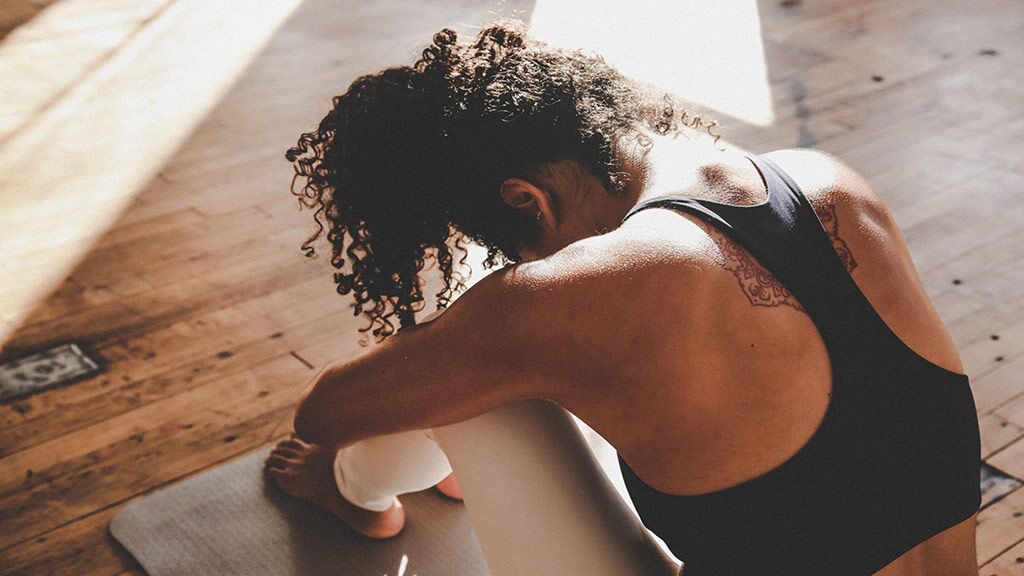
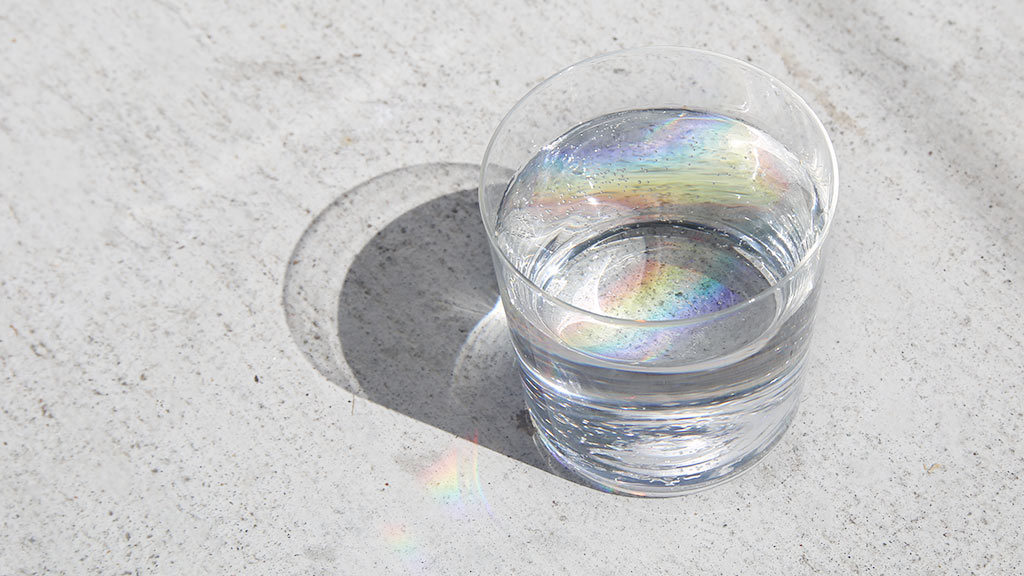
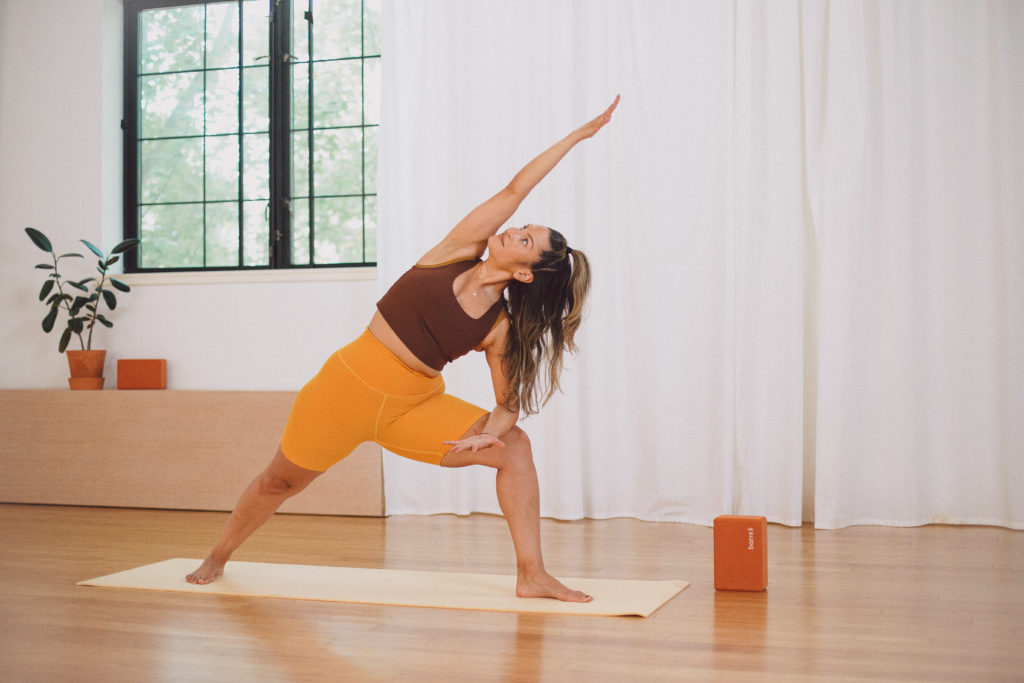
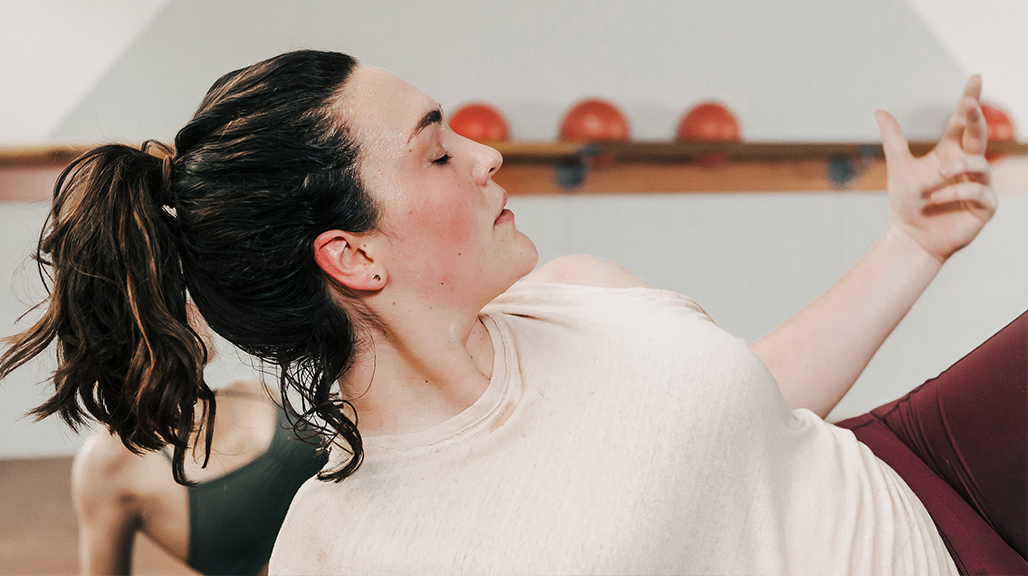
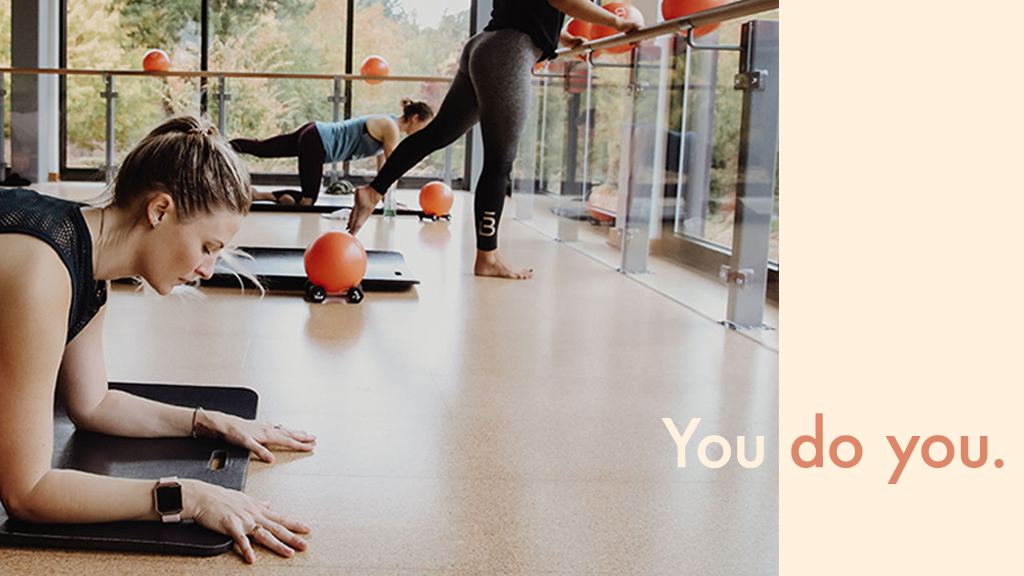



0 people have left a comment. Join the conversation!
View Comments